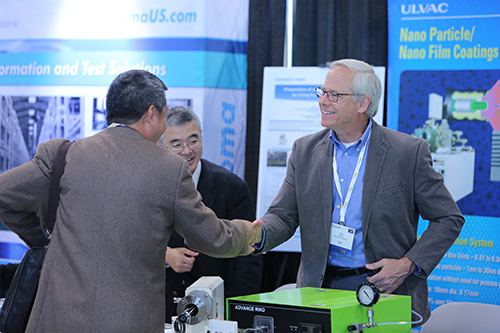![]() As of January 1, 2018, ECS will require all corresponding authors to have an ORCID iD in order to submit to the Journal of The Electrochemical Society or the ECS Journal of Solid State Science and Technology.
As of January 1, 2018, ECS will require all corresponding authors to have an ORCID iD in order to submit to the Journal of The Electrochemical Society or the ECS Journal of Solid State Science and Technology.
This requirement comes as part of ECS’s enduring commitment to open science. In addition to streamlining documentation processes for authors and publishers, ORCID facilitates trusted connections that advance scientific discovery, collaboration, and innovation. Learn more about this requirement.
How can you prepare? All you have to do is register! Registration is free, takes 30 seconds, and provides you immediate benefits. ECS recommends that all authors register, regardless of whether or not they will serve as a corresponding author.
ORCID iDs will be published in accepted articles and included in articles’ metadata to improve content discoverability and citation. See where.
Contributing authors who would like their ORCID iDs displayed along with the corresponding author’s iD will need to update their profiles in ECSxPress with their ORCID iDs prior to their paper’s acceptance.


 At the 2017 ECS biannual meetings, we had a total of 4,340 attendees from all over the world. Besides listening to the over 3,503 talks, and taking in 941 posters they were presented with the latest available electrochemistry and solid state science and technology products and services.
At the 2017 ECS biannual meetings, we had a total of 4,340 attendees from all over the world. Besides listening to the over 3,503 talks, and taking in 941 posters they were presented with the latest available electrochemistry and solid state science and technology products and services.
 New research stitches together the best parts of several different bacteria to synthesize a new biofuel product that matches current engines better than previously produced biofuels.
New research stitches together the best parts of several different bacteria to synthesize a new biofuel product that matches current engines better than previously produced biofuels. On Thursday, December 14, from 12:00 pm to 1:00 pm EST, ECS President Johna Leddy and ECS Transactions Editor Jeffrey Fergus will answer your questions about open science, the
On Thursday, December 14, from 12:00 pm to 1:00 pm EST, ECS President Johna Leddy and ECS Transactions Editor Jeffrey Fergus will answer your questions about open science, the  The
The  New research indicates that poplar trees could be an economically viable biofuel material.
New research indicates that poplar trees could be an economically viable biofuel material.